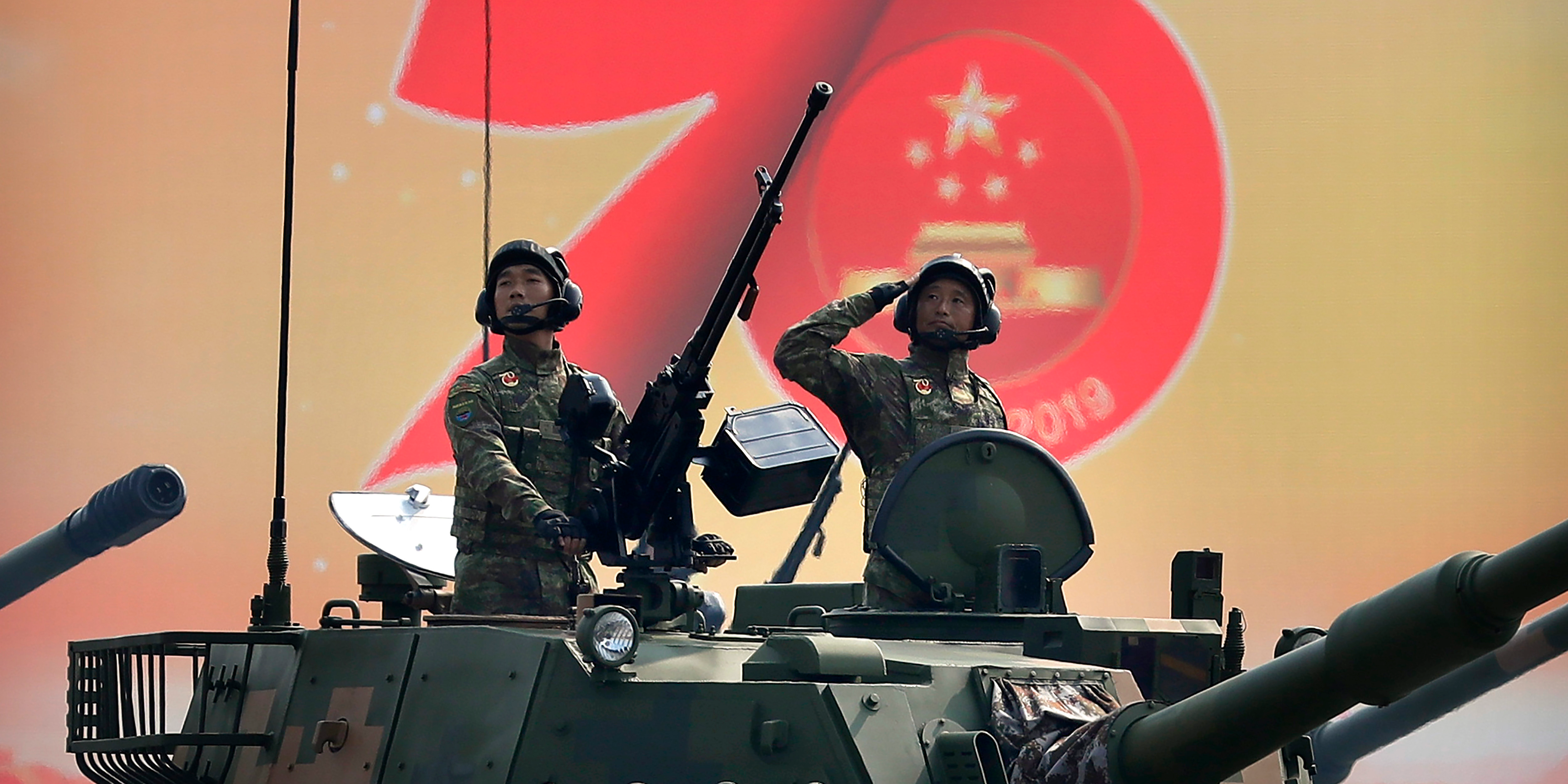- China held a massive military parade on Tuesday to celebrate its 70th National Day. 15,000 troops and several new weapons systems were part of the demonstration.
- US President Donald Trump observed France’s Bastille Day celebration in 2017. He wanted a similar event in the US, but critics were concerned about the cost – and parallels to military parades in totalitarian countries. Trump’s “Salute to America” took place on July 4, 2019, and featured flyovers from Air Force One, a B-2 stealth bomber and the Blue Angels.
- Here’s a look at how military parades in states led by strongmen compare to Trump’s July 4 event.
- Visit Business Insider’s homepage for more stories.
The Chinese Communist Party (CCP) held a massive 70th anniversary parade on October 1, featuring 15,000 troops and several pieces of cutting edge military technology.
US President Donald Trump held a military parade on July 4th with tanks and flyovers. But it wasn’t without its critics – some said it was reminiscent of the military parades dictators and other strongmen hold.
Still, it wasn’t close to the scale held by authoritarian states. Trump’s parade had roughly two dozen military aircraft, China’s had 160. Trump’s had two parked tanks and two static fighting vehicles, China’s had combat drones, tanks and intercontinental missiles that could strike the US.
While the military firepower at Trump's "Salute to America" may have been impressive - it included appearances from the Blue Angels and Air Force One - these military parades led by China and other authoritarian leaders are much more formidable displays of firepower to the world, and their own citizens.
Belarus's Independence Day celebration in 2018 was a vibrant one.

Belarus is nominally a democracy, but its president, Alexander Lukashenko, has been in power since 1994.

Source: Deutsche Welle
Beijing celebrated the 70th anniversary of the Chinese Communist Party's founding with stealth drones and hypersonic missiles across Tiananmen Square.

China's President Xi Jinping has overseen the detention of ethnic Uighurs in prison camps, in addition to the religious persecution and press censorship typical of the Chinese state.

The limits to presidents serving only two terms were lifted in 2018, allowing Xi to remain in office for life.
Venezuela's dictator Nicolas Maduro has overseen a dramatic humanitarian crisis in the country, but will not resign his post.

Maduro claimed victory in a 2018 election where he suppressed and jailed political opponents, an election result that remains disputed by opposition leader Juan Guaidó.
In the face of concern over US military intervention, Venezuela's troops put on a show for the country's Independence Day parade this year.

Trump's parade was unfavorably compared to military parades in autocratic states like Russia.

Source: PBS
Russian fighter jets practice for the Victory Day parade, in which Russia celebrates victory over Nazi Germany in 1945.

Vladimir Putin is in his fourth term as Russia's president, and has jailed political opponents and reduced press freedoms, and citizens have been harassed and beaten while observing elections.
North Korea places great importance on its military; its constitution says that military service is the duty and honor of citizens.

Source: INSIDER
North Korea also takes the opportunity to show off its firepower.

Kim Jong Il choose his son Kim Jong Un to be his successor as supreme leader over two of his older sons.
Iran's military marches before President Hassan Rouhani in 2017.

Iran's Supreme Leader, Ayatollah Ali Khamenei, oversees a theocratic regime that detains dissidents, restricts freedom of speech, and oppresses LGBT citizens.


Source: Vox
The Saudi security forces climb a flaming structure during a military parade.

Turkey's Recep Tayyip Erdogan rules over a country that is becoming increasingly less free. The Turkish government detains dissidents and threatens the press.

Erdogan has limited press freedom and opposition politicians have been jailed. After a failed coup, Erdogan narrowly won a referendum that expanded his legislative and judicial powers.

